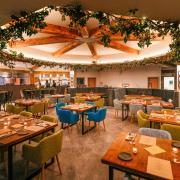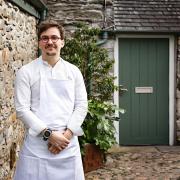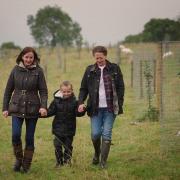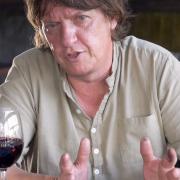There are bigger food issues than how to ice a birthday cake or how much coriander to add to a salsa. The Sustainable Food Lancashire campaign is seeking to make a real difference to food and to lives across the county and beyond. Martin Pilkington reports

The original driving force behind Sustainable Food Lancashire was Kay Johnson. Brought up on a farm, a former chef, and a qualified nutritionist it was working in Lancaster three years ago that she saw what the Soil Association’s Sustainable Cities initiative achieved there. It got her wondering why something similar couldn’t be done for the entire county.
After a major event 20 months ago at Edge Hill University, a steering group of 17 experts was launched. With some lottery funding the group is also launching its Food Champions programme.
She said: ‘We decided we’d develop a charter for Lancashire, and spent a year consulting with about 300 people from voluntary organisations, businesses, in public health, farming, the universities and food banks.
‘During the consultation I invited people to become part of a local network so we now have seven areas - Lancaster, Preston, Fylde and Wyre, Blackpool, Blackburn, East Lancs and West Lancs - where people meet to address issues like food poverty, cooking skills, and producing our own fruit and vegetables to reduce food miles. So Sustainable Food Lancashire is county-wide, but the local networks can focus on their areas.
‘We’re running pilots for Food Champions in three areas, starting with Preston, then Blackpool, then Blackburn, training people to deliver cooking skills classes in their communities, demonstrating how to cook from scratch, to live more cheaply and eat more healthily at the same time.’
The scandal of food waste is another issue they’re tackling, in part via ‘real junk food’ cafes. Food that, for example, supermarkets would otherwise dump is turned into cheap meals at luncheon clubs for pensioners or mum-and-toddler mornings in local community centres with cooking facilities.
A spin-off scheme, The Lancashire and Regional Dietary Education Resource (LARDER), is about to become a social enterprise to enable it to apply for the funding needed to train more volunteers to deliver support in a variety of food-related activities. Dr Charlie Clutterbuck, whose experience ranges from farming in Slaidburn to writing the World Health Organisation’s food and nutrition training programme for Africa and Asia, is working with Kay and the SFL team on the educational resources at its heart. It’s a local initiative, but he stresses the wider, even potentially global impact.
He said: ‘In the long term I’d like to see shorter food-chains, more locally produced and used food coming out of this initiative. I’m keen to see people produce food better, which is better for people to eat and does less damage to the environment in terms of food miles.
‘As an example, I’d love to see vegetables from Ormskirk reach East Lancs, just across the motorway, instead of largely coming from many more miles away. Fresher food, fewer food miles, less congested motorways. Various things the groups are doing all help towards such aims. It can’t be done in a day, far from it, but what Sustainable Food Lancashire is trying to do will be useful to make our food more local.’
The Sustainable Food Lancashire Charter
Promote healthy and sustainable food to the public
Tackle food poverty and diet-related ill health
Build community food knowledge, skills and resources
Promote a vibrant and diverse food economy
Transform catering and food procurement
Reduce waste and the ecological footprint of the food system



























